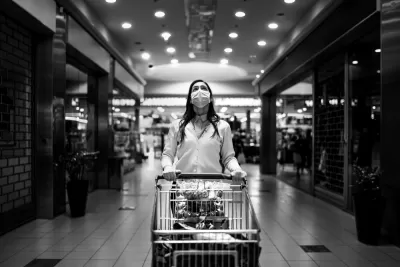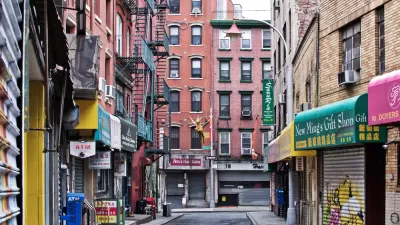Big cities suffered the worst economic effects if the pandemic as of March, according to April data from the U.S. Bureau of Labor Statistics.

"New data from the U.S. Bureau of Labor Statistics (BLS) offer the first comprehensive evidence of how responses to COVID-19’s spread began to affect metropolitan economies through mid-March," according to an article by Alan Berube.
"On April 3, that report indicated that the U.S. economy shed 701,000 jobs between mid-February and mid-March, and that the unemployment rate increased from 3.5% to 4.4%," according to Berube.
According to Berube, the primary takeaway from the new BLS data is of an unequal distribution of economic effects early in the pandemic. Job losses were concentrated in very large metropolitan areas—both in early hot spots of the disease (e.g., New York and Detroit) and in places under early, strict shot down requirements (e.g., San Francisco, Los Angeles, San Diego).
Earlier reporting on job losses at the local level noted that neighborhoods concentrating certain kinds of jobs (e.g., tourism and transportation) are experiencing the worst economic effects at the local level.
FULL STORY: Which city economies did COVID-19 damage first?

Alabama: Trump Terminates Settlements for Black Communities Harmed By Raw Sewage
Trump deemed the landmark civil rights agreement “illegal DEI and environmental justice policy.”

Study: Maui’s Plan to Convert Vacation Rentals to Long-Term Housing Could Cause Nearly $1 Billion Economic Loss
The plan would reduce visitor accommodation by 25% resulting in 1,900 jobs lost.

Planetizen Federal Action Tracker
A weekly monitor of how Trump’s orders and actions are impacting planners and planning in America.

Waymo Gets Permission to Map SF’s Market Street
If allowed to operate on the traffic-restricted street, Waymo’s autonomous taxis would have a leg up over ride-hailing competitors — and counter the city’s efforts to grow bike and pedestrian on the thoroughfare.

Parklet Symposium Highlights the Success of Shared Spaces
Parklets got a boost during the Covid-19 pandemic, when the concept was translated to outdoor dining programs that offered restaurants a lifeline during the shutdown.

Federal Homelessness Agency Places Entire Staff on Leave
The U.S. Interagency Council on Homelessness is the only federal agency dedicated to preventing and ending homelessness.
Urban Design for Planners 1: Software Tools
This six-course series explores essential urban design concepts using open source software and equips planners with the tools they need to participate fully in the urban design process.
Planning for Universal Design
Learn the tools for implementing Universal Design in planning regulations.
Caltrans
Smith Gee Studio
Institute for Housing and Urban Development Studies (IHS)
City of Grandview
Harvard GSD Executive Education
Toledo-Lucas County Plan Commissions
Salt Lake City
NYU Wagner Graduate School of Public Service





























